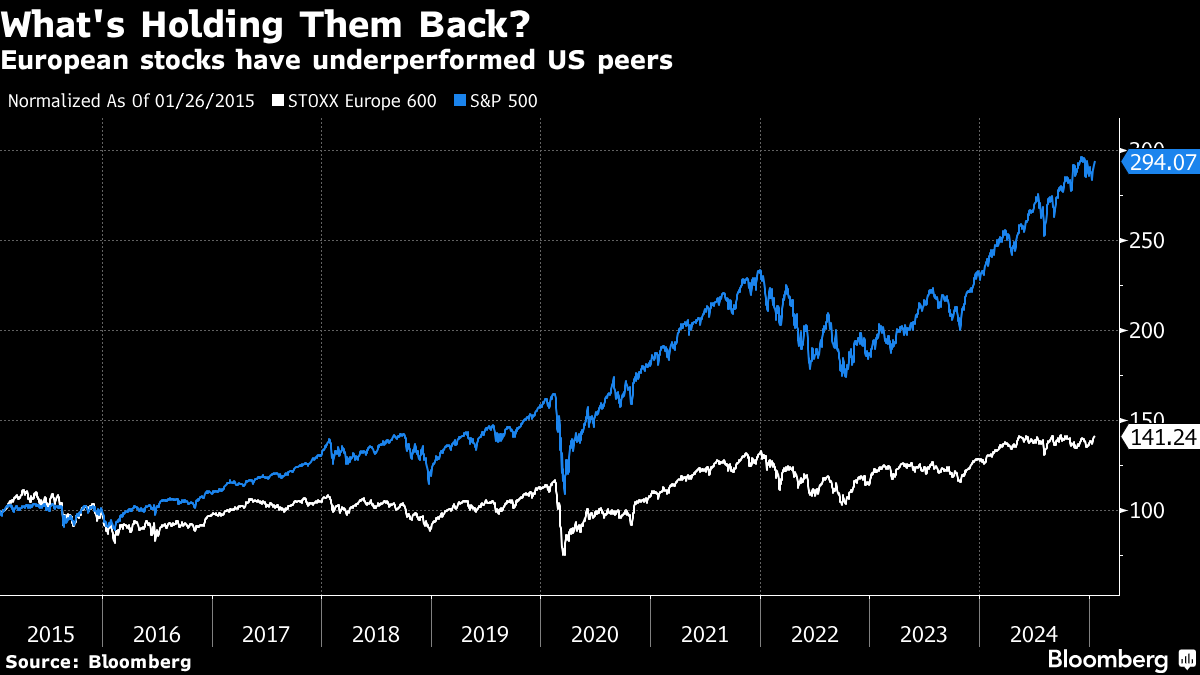
The European Union is likely to scale back its highly contested ESG reporting requirements, as France prepares to unveil a formal proposal seeking to limit the scope of the regulatory framework.
The French government is readying a new set of recommendations intended to rein in the Corporate Sustainability Reporting Directive, and may present its proposal as early as this week, according to a person familiar with the matter who’s not authorized to speak publicly on the subject.
The development means the EU’s two biggest economies are now pressuring the European Commission to make cuts to CSRD, after Germany’s government last month urged the bloc’s executive arm to scale back the directive. That’s as fresh data show Europe’s largest economy shrank for a second consecutive year in 2024, with many business leaders and lawmakers blaming regulations for a loss of competitiveness.

“There is a common diagnosis of the need to lighten the burden on businesses to make them commensurate with the challenges we face,” Robert Ophele, chair of the French Accounting Standards Authority and a former head of the country’s financial regulator, said by email. “Differences are more in the magnitude and timing of what should be done.”
A French government spokesperson didn’t immediately respond to a request for comment.
A European retreat from its ESG (environmental, social and governance) ambitions coincides with a new political reality in the US, where President Donald Trump has committed to unwind Biden-era climate policies, boost fossil-fuel production and impose tariffs on goods from countries traditionally seen as allies.
The European Commission may choose to back significant limits in the scope of CSRD, according to people familiar with the matter who asked not to be identified discussing private deliberations. Talks are ongoing and the commission continues to take new information into account, the people said.
READ MORE: US SEC 'drops some emissions disclosure requirements'
A spokesperson for the commission declined to comment on details of the discussions currently underway. The EU’s executive arm is currently assessing various files for inclusion in the so-called omnibus proposal, the spokesperson said by email, referring to a legislative process that combines more than one proposal.
Talks are expected to continue until Feb 26, when the commission is scheduled to discuss and possibly adopt the omnibus legislation, the commission spokesperson said. The timeline is subject to change, the person said.
In the existing plan, CSRD would affect as many as 50,000 companies doing business in the European Union. Companies with at least 250 employees and annual revenue of €50 million ($52 million) must report hundreds of ESG data points, ranging from the gender diversity of their boards to the biodiversity risks posed by their operations. The first batch of companies started collecting such data last year, with public disclosures due to be published in 2024 annual reports.
READ MORE: Amid tougher climate disclosures, campaigners scour for laggards
The French government’s proposal is likely to echo recommendations by Ophele, according to the person familiar with the matter. In his capacity as chair of the French Accounting Standards Authority, Ophele has suggested that the EU maintain most of the current deadlines for compliance with CSRD, but make cuts to requirements for companies with fewer than 1,000 employees, according to documents seen by Bloomberg.
Though widely supported in 2022 when it was adopted, CSRD is now drawing criticism from policymakers and businesses alike as deadlines loom to publish the first reports. A separate set of EU-focused ESG rules, called the Corporate Sustainability Due Diligence Directive, has already seen its scope limited so that it only affects companies with at least 1,000 employees and annual revenue of at least €450 million.
Matching CSDDD, which introduces new legal risks for companies that fail to address human rights and environmental breaches, may lower the number of companies obligated to report under existing CSRD rules to as few as 7,000.
CSRD also has been criticized from outside the EU, with lawmakers in the US contending that its scope represents regulatory overreach. And last year, former European Central Bank President Mario Draghi singled out regulations as a key reason why Europe is falling behind the US in competitiveness. European Commission President Ursula von der Leyen has responded by pledging to cut administrative reporting burdens by as much as 35 percent.
The discussions are likely to hold up development of ESG impact-only requirements for non-EU companies without listings in the bloc, with debate centered on whether those should apply globally. They are now being set for firms that first report in 2029.



